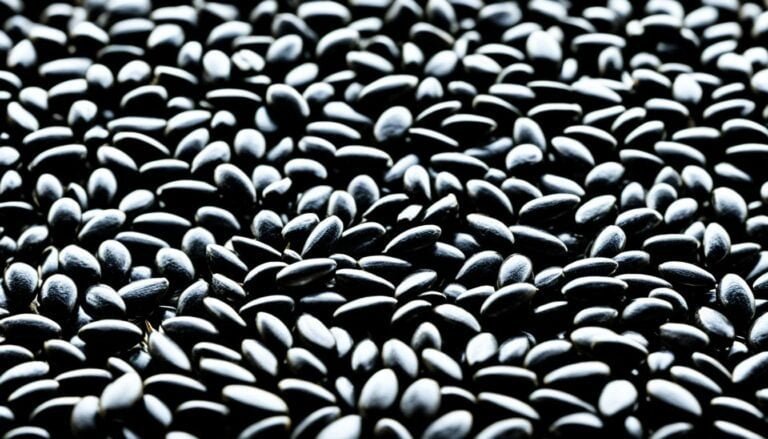Benefits of Fenugreek Tea and How to Brew at Home

Did you know that two-thirds of the world uses herbal remedies for health issues? In the U.S., this is less common. Yet, fenugreek tea is becoming popular for its wellness benefits. It comes from the fenugreek plant and has been used for centuries in traditional medicine.
This tea is full of benefits, like helping with digestion and blood sugar control. It also supports lactation and can reduce inflammation. If you want to boost your health or meet specific health goals, herbal tea made from fenugreek seeds might be what you need. We’ll dive into how to make it, flavor options, and how much to drink daily. We’ll also cover important safety tips and things to watch out for.
Introduction to Fenugreek Tea
This tea is made by steeping the seeds of the fenugreek plant in hot water. This ancient herb has been used for centuries in traditional medicine. It’s popular in the Mediterranean and Asia. The tea tastes slightly sweet and nutty, making it a favorite for those looking for a tasty, healthy drink.
Fenugreek grows in many places, including the Indian subcontinent, parts of West Asia, and the Middle East. It’s also found in North Africa, the UK, Russia, Mediterranean Europe, Australia, the US, and Canada. Studies show it has many health benefits, like helping with diabetes, lowering cholesterol, and fighting inflammation.
The fenugreek plant is an annual herb that keeps flowering until frost. It produces pods that are 10 to 15 cm long, with about 18-20 seeds each. These seeds turn from green to brown as they mature.
This plant is used in many industries because of its many nutrients. It has things like steroidal sapogenin, flavonoids, and essential amino acids. These nutrients make it valuable for health products and food.
The seeds help lower cholesterol and blood sugar levels. This herb has been a medicine in ancient times in China and the Indus valley. Its unique taste and health benefits make it a top choice for those looking for a natural remedy.
What is Fenugreek Tea?
Preparation and Taste
Fenugreek tea is a tasty herbal tea made from the seeds of the fenugreek plant. These seeds are golden-brown and small. When you steep them in hot water, they release a sweet, nutty flavor that tastes a bit like maple syrup. This makes the tea special.
To make fenugreek tea, you rinse the seeds first. Then, you add them to boiling water and let them steep for 5-10 minutes. This depends on how strong you like your tea. After steeping, you strain the tea to remove the seeds, and it’s ready to drink.
The tea tastes sweet, nutty, and a bit like maple syrup. It also has a unique smell that’s different from regular teas. You can drink it alone or mix it with sweeteners, herbs, and spices to make it your own.
Drink this soothing tea in moderation to reap its many health benefits. With its positive effects on digestion and blood sugar control, it’s a great addition to your daily routine.
This drink is great on its own or in recipes and blends. You can drink it plain or add flavors to it. It’s a unique tea that you can make your own.

Health Benefits of Fenugreek Tea
This tea is known for its health perks. It supports digestive health, helps with blood sugar levels, and has anti-inflammatory and antioxidant properties. This drink is great for your overall health.
Digestive Health
Fenugreek tea can ease constipation and boost digestion by lowering inflammation. Its soluble fiber helps with regular bowel movements. It also eases bloating, gas, and discomfort.
Blood Sugar Control
Fenugreek has compounds that make insulin work better. This is good for managing blood sugar levels, especially for those with diabetes. Drinking this tea might help keep blood glucose stable and lower the risk of type 2 diabetes.
| Fenugreek Tea Benefit | Supporting Evidence |
|---|---|
| Digestive Health | Fenugreek’s soluble fiber can help relieve constipation and reduce inflammation in the digestive tract. |
| Blood Sugar Regulation | Compounds in fenugreek can enhance insulin sensitivity, helping to manage blood sugar levels. |
| Anti-Inflammatory Properties | The high antioxidant levels in fenugreek suggest it may have beneficial anti-inflammatory effects. |
Fenugreek tea also has anti-inflammatory and antioxidant properties. These can help with conditions like arthritis and other inflammation. Adding this tea to a healthy lifestyle is a smart move.
Fenugreek Tea for Lactation Support
If you’re a breastfeeding mom, you might have heard about this tea’s benefits. It can help with healthy lactation and milk production. Fenugreek, a plant used in traditional medicine, has compounds that help produce oxytocin. This hormone is key for milk let-down and supply. Drinking this tea daily might increase your milk supply and help your baby get the nutrients they need.
Studies on fenugreek and milk production have given mixed results. Some say it can slightly increase milk supply, especially in the first two weeks after birth. But, how well it works can also depend on your mindset. Still, many breastfeeding moms find this herbal drink helpful for their lactation journey.
Fenugreek is also looked at for other health benefits. Its fiber can help control blood sugar and improve insulin in people with diabetes. It also has anti-inflammatory properties and antioxidants that might help with digestion and even prevent some cancers.
Before using fenugreek tea for milk supply, talk to a healthcare professional. It can interact with some medicines and isn’t safe for pregnant women. Always stick to the recommended doses and don’t take more than what’s in food, as its safety for breastfeeding moms and babies is still being studied.

To use fenugreek tea, mix it with other ways to boost milk supply like frequent feeding, pumping, good nutrition, and self-care. This holistic approach can help your breastfeeding journey and make sure your baby gets the nutrients they need to grow well.
Making your own tea at home is easy and lets you enjoy its health benefits. It’s great for supporting lactation or just trying out its unique taste. Making it at home is both fun and easy.
Making your own fenugreek tea at home is easy and lets you enjoy its health benefits. It’s great for supporting lactation or just trying out its unique taste. Making it at home is both fun and easy.
Basic Fenugreek Tea Recipe
Start by lightly crushing or grinding the fenugreek seeds. This makes the tea’s flavors and oils come out. Boil a cup of water, add the crushed seeds, and steep for 3-7 minutes.
Then, strain the tea. You can drink it hot or cold. Add honey or lemon if you like.
Herbal Lactation Tea Recipe
For a special lactation tea, mix fenugreek seeds with herbs like nettle, red raspberry leaf, fennel, and lemon verbena. This mix can be kept in a container and used to make a tea that helps with milk production. Just steep the herbs in hot water for 5-10 minutes, then strain and drink.
Fenugreek tea is great for new moms and anyone wanting its health benefits. By making it yourself, you can adjust the taste to your liking.

Flavoring and Sweetening Options
Fenugreek tea has a unique taste that is slightly sweet and nutty. Some might find it an acquired taste. But, there are ways to make it taste better. By adding natural sweeteners or other flavors, you can make it more enjoyable.
Sweetening Fenugreek Tea
- Honey: A classic choice, honey can help balance any bitterness and enhance the tea’s natural sweetness.
- Maple Syrup: This rich, maple-infused sweetener pairs beautifully with the nutty notes of fenugreek.
- Stevia: A plant-based, zero-calorie sweetener that provides a clean, sweet taste without affecting the tea’s flavor profile.
Flavoring Fenugreek Tea
- Lemon: A squeeze of fresh lemon juice can brighten the tea and add a refreshing citrus twist.
- Ginger: Grated or chopped fresh ginger root can lend a warm, spicy element to the tea.
- Cinnamon: A sprinkle of ground cinnamon can enhance the tea’s natural sweetness and create a comforting, aromatic blend.
Try these fenugreek tea flavors, sweetening fenugreek tea, and other herbal tea customization options. You can find your perfect tea additions and enjoy a truly personalized cup of fenugreek tea.
| Sweetener | Benefits | Suggested Amount |
|---|---|---|
| Honey | Balances bitterness, enhances natural sweetness | 1-2 teaspoons per cup |
| Maple Syrup | Adds a rich, maple-infused flavor | 1-2 teaspoons per cup |
| Stevia | Zero-calorie, plant-based sweetener | 1/4 to 1/2 teaspoon per cup |

Storing Fenugreek Tea
Keeping your fenugreek tea fresh and flavorful is key to getting the most out of it. Proper storage of fenugreek tea helps it last longer and keeps it ready whenever you need it.
Once you’ve brewed your tea, store the leftover in a sealed pitcher or airtight container in the fridge for up to a week. This way, you can enjoy its benefits for days without brewing new tea every time.
For keeping fenugreek tea for longer, freeze it in ice cube trays or small containers. Freezing keeps the flavor and strength, so you can easily thaw and reheat a single serving when needed.
If you want to store the whole seeds, keep them in an airtight container in a cool, dark spot for up to 4 years. This means you always have fenugreek tea ingredients ready, even if you’re not brewing it right away.
Proper preservation of fenugreek tea is crucial for enjoying its health benefits over time. With these easy storage tips, you can enjoy the taste and benefits of this versatile tea whenever you want.

Recommended Daily Intake
When it comes to your fenugreek tea dosage, the recommended amount varies. Aim for 1 to 6 grams of fenugreek seeds daily, or 2 to 3 cups of brewed fenugreek tea. Start with the lower amount if you’re new to fenugreek.
Fenugreek can help manage blood sugar levels. So, be careful not to take too much if you have diabetes or other health issues. It’s important to stick to the recommended amounts for daily fenugreek tea consumption.
- 1 tablespoon of whole fenugreek seeds contains 35 calories, 3g of fiber, 3g of protein, 6g of carbohydrates, and 1g of fat.
- The same quantity also provides 21% of the Daily Value (DV) of iron, 6% of manganese, and 5% of magnesium.
- Dosages of fenugreek can vary depending on the desired health benefits, ranging from 250-600mg for testosterone to 1-6g for breast milk production.
Always talk to your healthcare provider before increasing your fenugreek tea dosage or starting any new supplements. They can give you advice on the recommended fenugreek intake that suits your health needs.
Precautions and Contraindications
Fenugreek tea is usually safe for most people. But, there are some things to keep in mind. If you’re allergic to peanuts or chickpeas, avoid fenugreek because it’s similar to these foods. Also, talk to your doctor before drinking fenugreek tea if you have diabetes or blood sugar issues. It can affect your blood sugar levels.
If you’re pregnant, be careful with fenugreek tea. It might make your uterus contract. Always talk to a doctor before adding fenugreek tea to your daily routine.
Fenugreek tea side effects include diarrhea, a lot of gas, and a strong smell from your urine if you drink too much. If you drink too much, you might also have severe hypoglycemia symptoms. These symptoms include feeling weak, confused, and shaky, sweating a lot, having a fast heart rate, trouble speaking, feeling nauseous, vomiting, breathing fast, fainting, and having seizures.
Fenugreek tea contraindications include blood clotting medicines like warfarin and anti-inflammatory drugs like ibuprofen. Also, it’s not safe during pregnancy or while nursing.
If you have health issues or take medicines, talk to your doctor before trying fenugreek tea. Herbal supplements can have harmful substances and aren’t always made safely.
Fenugreek Tea: Benefits and How to Brew at Home
Fenugreek tea is a versatile and health-promoting herbal beverage that can be easily brewed at home. It aids digestion, regulates blood sugar, supports lactation, and reduces inflammation. This ancient tea is a valuable addition to a wellness-focused lifestyle.
Consuming fenugreek tea daily in moderation may help alleviate inflammation and improve digestion, cardiovascular health, and brain health. A study showed that daily intake of fenugreek can lower blood cholesterol levels in patients with coronary artery disease. It treats constipation and digestive issues like ulcerative colitis and irritable bowel syndrome due to its fiber content.
Fenugreek tea may have anti-inflammatory effects that help treat conditions like arthritis and autoimmune diseases. It can aid in weight loss efforts and reduce fat consumption. The soluble fiber in fenugreek lowers blood sugar levels, which is beneficial for type 2 diabetes patients.
Fenugreek tea may boost brain function with a compound called trigonelline. This could slow down age-related memory loss and reduce the risk of brain diseases like Alzheimer’s and Parkinson’s. Fenugreek supplementation may also increase testosterone levels in males, improving sexual health and resistance training.
To brew fenugreek tea at home, use 1 tbsp whole fenugreek seeds, 2 cups of water, 1 cinnamon stick, and 1 tbsp dried hibiscus flowers (optional). Add sweeteners like honey, maple syrup, and a lemon wedge for garnish. For best results, drink the tea 20-30 minutes before meals to manage post-meal blood sugar levels.
Proper hydration with caffeine-free herbal tea is key to supporting overall health and keeping blood sugar stable. Always check your blood sugar levels and consult with a healthcare professional before trying natural remedies, especially if you have diabetes or prediabetes.
Conclusion
This herbal drink has a long history and many health benefits. It’s easy to make a tasty cup at home. This can be a great way to add something good for your health to your daily routine.
If you’re looking for help with digestion, blood sugar control, lactation, or just feeling better overall, fenugreek tea is a great choice. It’s natural and tastes good. With some care and by adding this herbal remedy to your life, you can use fenugreek tea to boost your health and energy.
This herbal remedy has many health benefits. It can help with lactation and keep blood sugar levels in check. This makes it a great natural remedy for your health. By making and drinking this wellness drink at home, you’re taking a step towards better health with the power of this ancient and versatile plant.
FAQ
What is fenugreek tea?
Fenugreek tea comes from the fenugreek plant’s seeds. It’s a flavorful herbal tea used for centuries in traditional medicine. It’s now popular for its health benefits.
How is fenugreek tea prepared?
To make fenugreek tea, you crush or leave the seeds whole. Then, steep them in boiling water. This releases a sweet, nutty flavor that tastes a bit like maple.
What are the health benefits of fenugreek tea?
Fenugreek tea is known for its health perks. It supports digestion, helps control blood sugar, and has anti-inflammatory and antioxidant effects. It also aids in healthy breast milk production for nursing moms.
How can I customize the taste of fenugreek tea?
Customize fenugreek tea by adding sweeteners like honey or maple syrup. You can also add lemon, ginger, or cinnamon for a unique flavor.
How should I store fenugreek tea?
Store brewed fenugreek tea in a sealed container in the fridge for up to a week. Keep the dried seeds in an airtight container for up to 4 years. This way, you always have herbal tea on hand.
What is the recommended daily intake of fenugreek tea?
Drink 1 to 6 grams of fenugreek seeds daily, or 2 to 3 cups of tea. But, don’t overdo it, especially if you have diabetes.
Are there any precautions or contraindications for fenugreek tea?
Avoid fenugreek if you’re allergic to peanuts or chickpeas. Talk to your doctor before drinking it if you have diabetes or blood sugar issues. Pregnant women should be careful as it might cause contractions.






